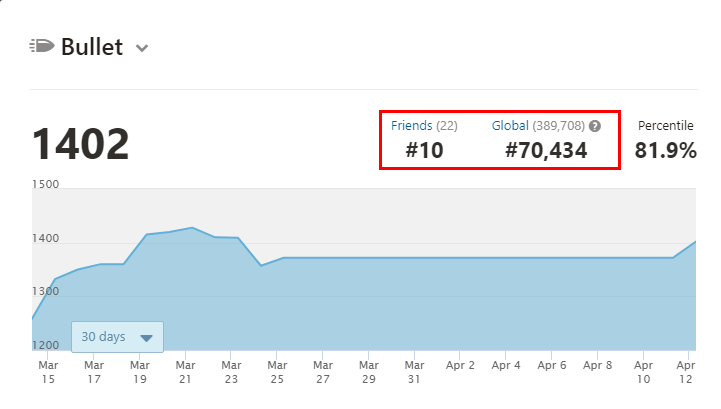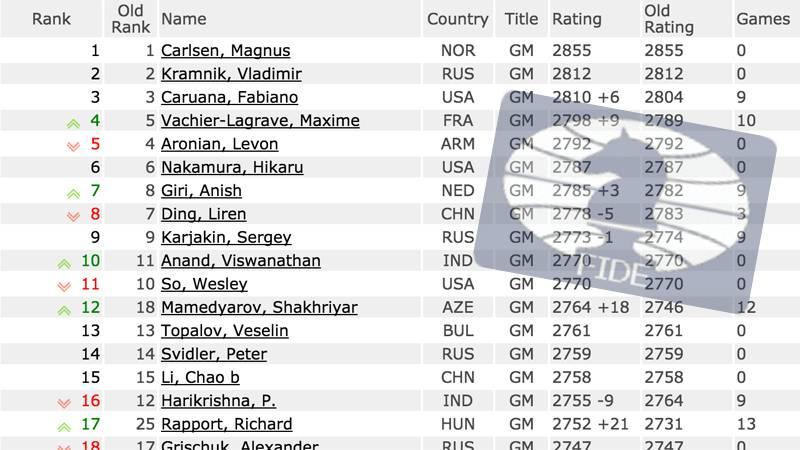Historical Chess Ratings – dynamically presented
Por um escritor misterioso
Descrição
There is always a certain fascination with comparisons between strengths of chess players. Who was the greatest of them all? Was Rubinstein in his day the equal of Korchnoi in his? Rod Edwards, Professor of Mathematics, has developed a rating theory based on a network of interactions between chess players over time. His results are remarkable, and a presentation made by youthful California programmer Cary Huang is <a href="[Post:view_link]">truly mesmerizing.</a>
What are the chess ratings of all of the Magnus ages? - Quora
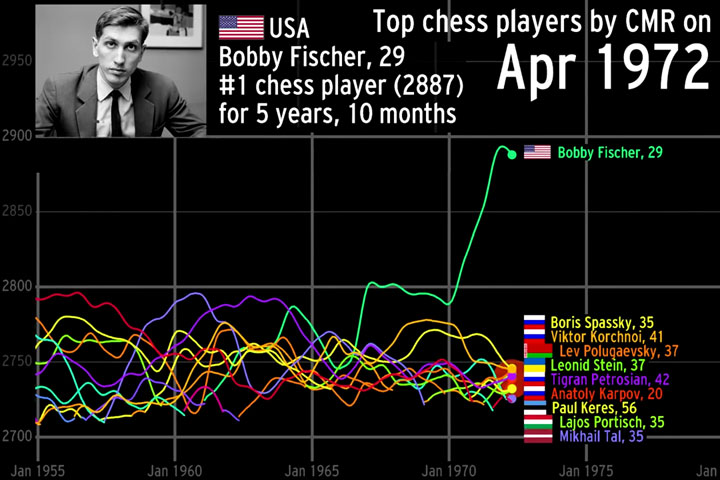
History of top chess players over time

Chess theory - Wikipedia
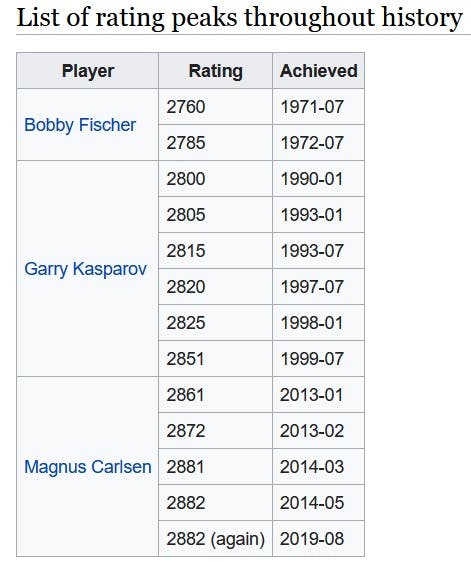
Rating Inflation in Chess: True or False?

Dynamic Chess School Agra
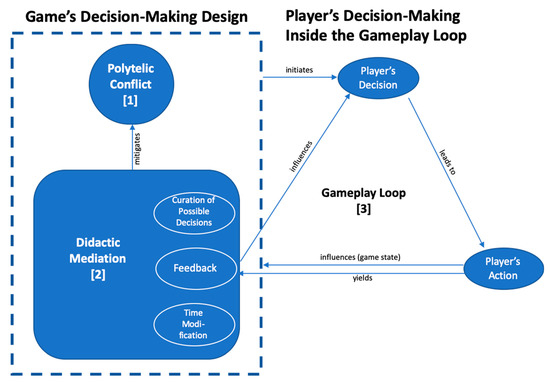
Education Sciences, Free Full-Text
Developing an Elo Based, Data-Driven Rating System for 2v2 Multiplayer Games, by Lazare Kolebka

Magnus Carlsen Won the Chess World Championship Again, but Something Has Changed
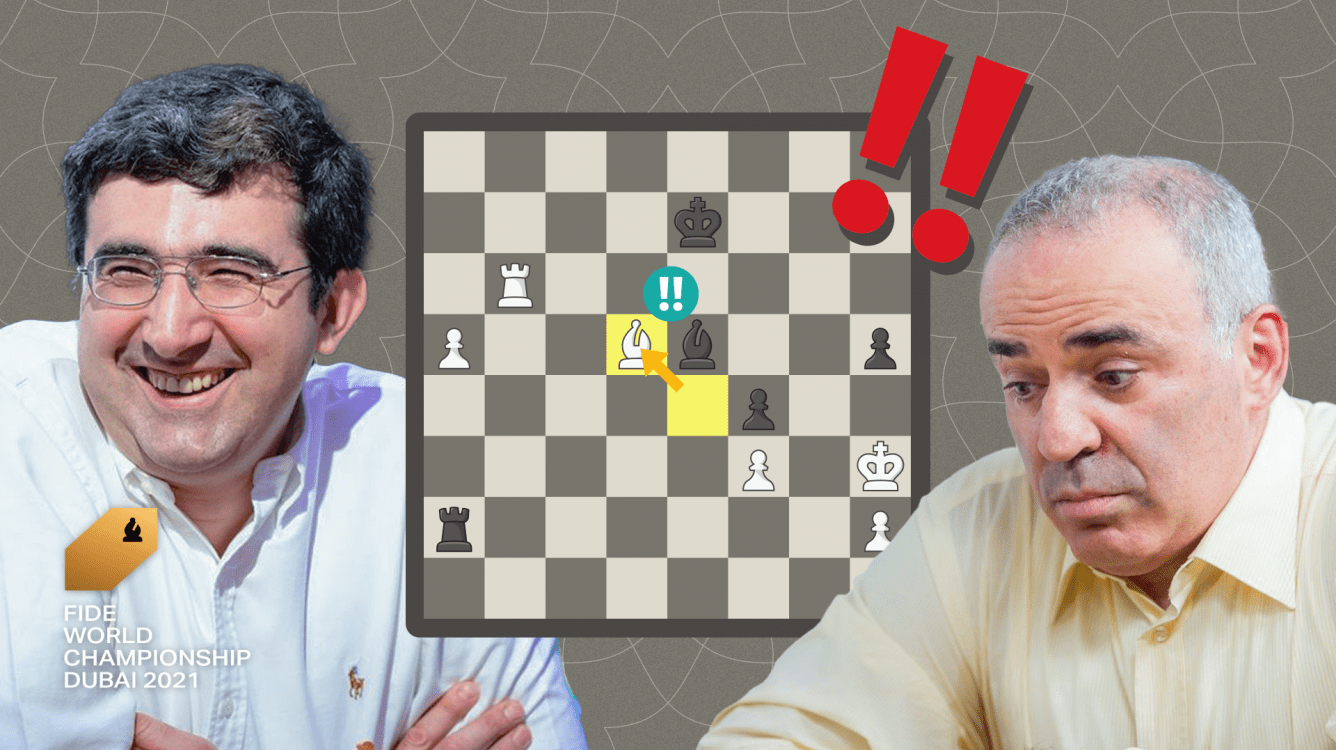
4 Surprising World Chess Championship Upsets
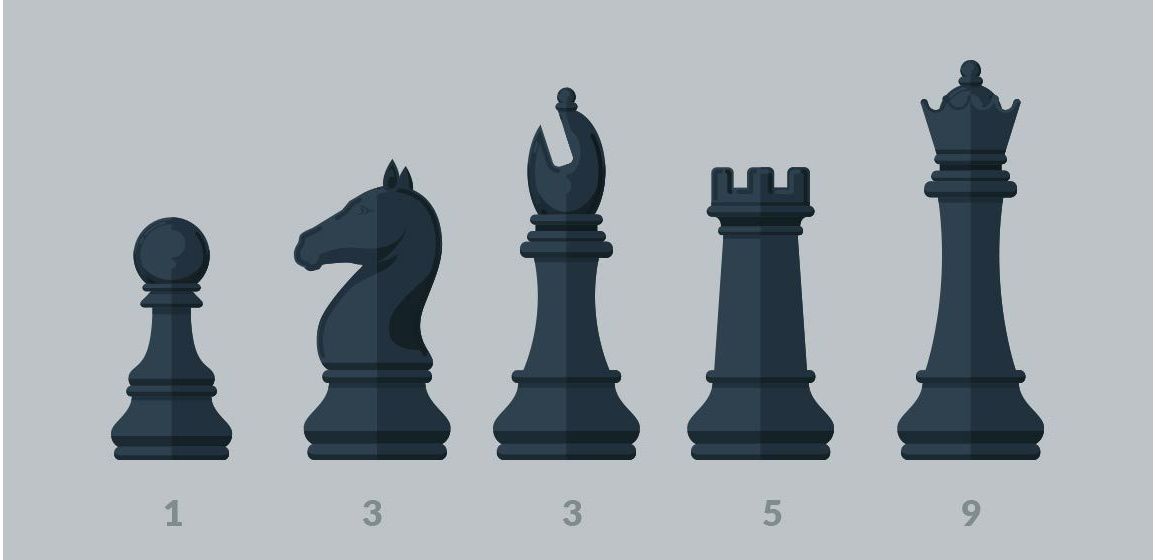
Know Your Chess Pieces' Value to Triumph

Historical Chess Ratings – dynamically presented
Massive difference in top 4 rating in FIDE Classical Rankings - March 2020 : r/chess

Denker: HS (K-12) History
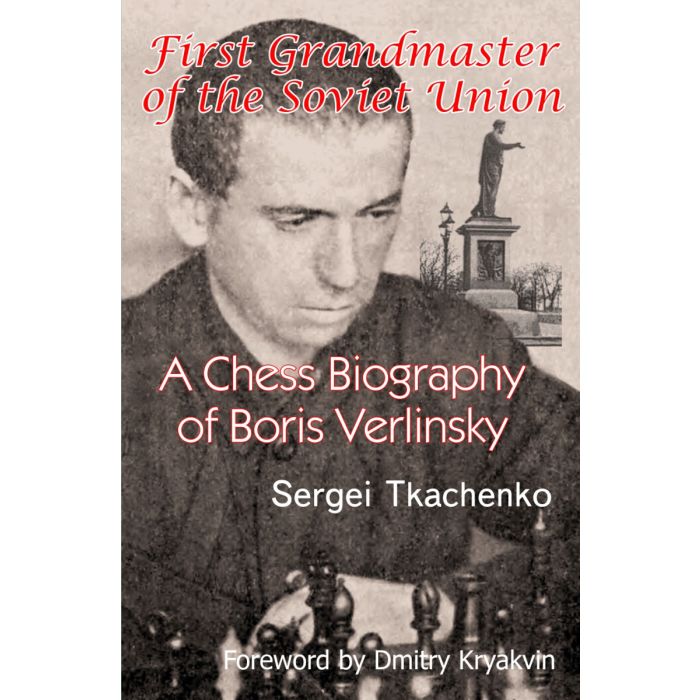
First Grandmaster of the Soviet Union

The Greatest Chess Player of All time - Part I
de
por adulto (o preço varia de acordo com o tamanho do grupo)
